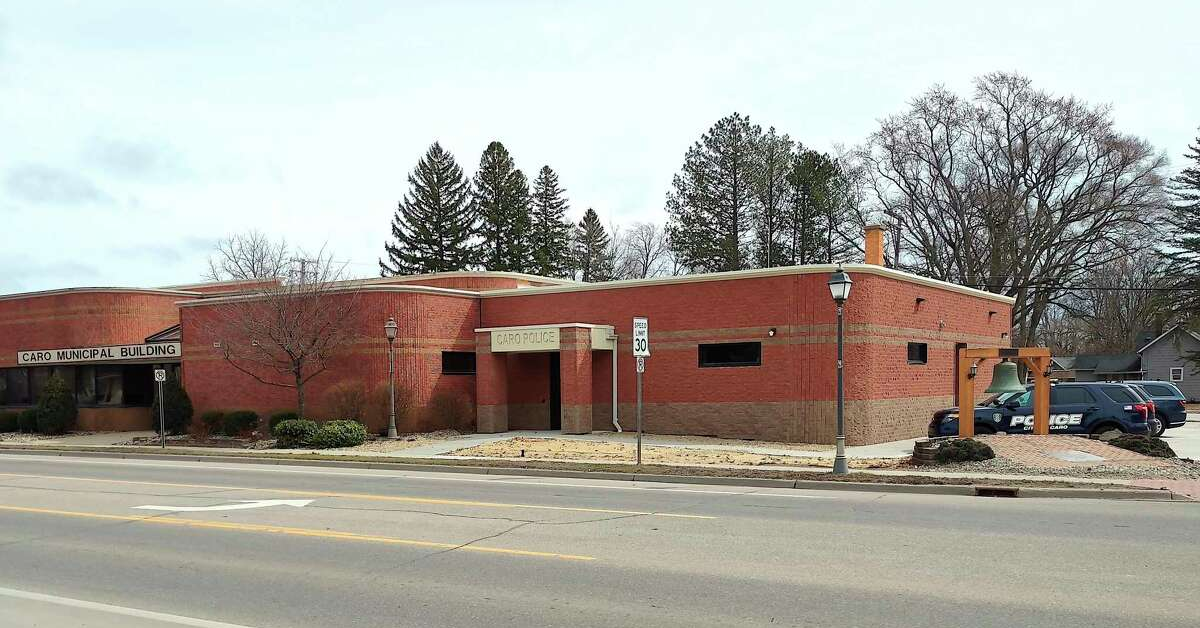710 Labs Cherry Zest #4 Review: Hype or High Quality?

710 Labs, a revered brand known for their concentrates, launched earlier this year in Michigan with a selection of hash, flower, and pods. Their commitment to quality and organic cultivation is a cornerstone of their reputation.
Product Overview:
- Strain: Cherry Zest #4 (Zkittlez x Animal West)
- THC: 16.70%
- CBD: 0.02%
- Harvest Date: 03/08/2023
- Tested by: Cambium Analytica on 03/30/2023
Review Highlights:
- Appearance: The product features large, seemingly hand-trimmed nugs with impressive bag appeal.
- Aroma: A sweet, funky citrus scent.
- Taste: A light citrus flavor, but with an unusual aftertaste.

The Verdict:
While 710 Labs is renowned for their high-quality concentrates, this particular flower strain didn't quite live up to the hype. The aesthetics of the buds were on point, and the packaging was attractive, but the flavor profile and the peculiar aftertaste were disappointing. It lacked the robust flavors expected from a top-tier product, leading to it described as "all sizzle, no steak."
Price Point:
The retail price of $60 for an eighth was deemed steep, even with a 20% discount bringing it down to $48. Based on this experience, they question the value for money but remain open to trying other strains from 710 Labs in the future.
For the complete review and more information, visit Gas & Middies. Your source for Michigan cannabis reviews & information. Finding the gas ⛽ through all of the middies 🥱
Biden's Marijuana Pardons: A Turning Point for Michigan Convicts

President Joe Biden's recent wave of pardons, which included thousands of individuals with federal convictions for personal marijuana use, marks a significant step in changing the landscape for many Michigan residents with similar convictions. Announced last Friday, these pardons are seen as a groundbreaking move in the ongoing shift in how marijuana-related offenses are viewed at the federal level.
Barton Morris, a prominent attorney and member of the Cannabis Council in Troy, Michigan, lauded the president's decision. He emphasized the uniqueness of Biden's consecutive annual pardons in this area, a first in U.S. presidential history. Morris pointed out the profound impact of such convictions on individuals, stating, "Nobody should be in prison or serving time or even suffering any penalties whatsoever for marijuana-related convictions."
The implications for Michiganders with marijuana convictions are particularly significant. Morris noted the profound negative impact of felony convictions on individuals' lives, including hindering employment opportunities and obtaining licenses in various industries. Despite the legalization of personal marijuana use in Michigan, Morris highlighted that numerous state residents are still serving sentences for actions that are no longer considered criminal.
Morris expressed hope that the federal pardons will inspire Michigan Governor Gretchen Whitmer and other state officials to follow suit. He sees this as an opportunity for state leaders to demonstrate courage and justice in their policy decisions, reflecting the changing attitudes towards marijuana use.
Michigan is among the 24 states that have legalized recreational marijuana use. The recent presidential pardons, according to Morris, could not only influence state-level decisions but also potentially pave the way for more states to join the list of those where recreational marijuana use is legal.
Caro to Vote on Increasing Marijuana Cultivation and Processor Licenses

Caro, Michigan, is on the brink of a significant expansion in its marijuana industry, as it gears up for a crucial vote on a new ordinance in the upcoming February 2024 election. The proposal, initiated by a ballot committee through a petition, aims to substantially increase the number of licenses for marijuana cultivation and processing within the city.
Tuscola County Clerk Jodi Fetting recently announced the addition of this proposal to the ballot, signaling a potential shift in Caro's approach to marijuana legalization under the Michigan Adult Use Marijuana Act. Specifically, the proposal focuses on Class C cultivation licenses, which currently allow holders to cultivate up to 1,500 plants for medical use and 2,000 plants for recreational use. At present, Caro has issued two such licenses, but the proposed ordinance seeks to raise this cap dramatically to 30 grower licenses. Furthermore, the ordinance would permit stacking up to five Class C licenses.
Another key aspect of the proposal is the increase in the number of adult-use processor licenses, from the existing two to eight. Additionally, the proposal introduces a new type of license: the excess marijuana grower license. To qualify for this license, an entity must already possess five Class C licenses and at least two grower Class C licenses. This license type allows incremental growth of 2,000 plants under each license, aligning with medical marijuana regulations. If approved, Caro would offer two excess adult-use marijuana licenses.
The language of the proposal clearly states its intent to expand the number of Class C grower and processor licenses and to introduce excess grower licenses, thereby providing a framework for the city to regulate these establishments.
Scott Czasak, Caro City Manager, maintained a neutral stance, emphasizing that as the proposal is a citizen-initiated petition, he could only present the facts without personal commentary. Czasak highlighted that the approval of the proposal would open up more license opportunities, subject to the application and approval process.
This development in Caro reflects a broader trend of municipalities in Michigan and across the United States grappling with the implications and opportunities of marijuana legalization, particularly in the areas of cultivation and processing.
New Buffalo Township Approves Controversial Marijuana Retail Permit

During its December 18th meeting, the New Buffalo Township Board approved a preliminary special land use permit for Mint New Buffalo LLC. This permit allows the company to operate an adult-use marijuana retail establishment at 18300 U.S. 12. This decision comes despite opposition from the Township Planning Commission, which had recently voted against the request.
Michelle Heit, New Buffalo Township Supervisor, clarified that the Planning Commission's role is advisory and that the Township Board holds the final decision-making power. She emphasized that the application adheres to the local ordinance, which states, "A facility or establishment may not be on a parcel that abuts R-1, R-2, Ag, R, or MR zoning districts within the township." According to Heit, the Mint application met these standards, as the parcel in question does not directly abut a zoning district, being separated by a state highway.
New Buffalo Mayor John Humphrey, during the public comment section, raised concerns on behalf of city residents. He questioned the process, citing the Michigan Planning Enabling Act, which requires a second meeting if the Planning Commission's decision is appealed – a meeting that had not occurred. He also highlighted the zoning ordinance's discretion for the Planning Commission to issue special use permits and a clause prohibiting provisioning centers within 150 feet of residential dwellings, unless waived.
Several advocates spoke in favor of Mint's application. Barrett Young, representing Mint, reiterated the ordinance's language, stating it specifically pertains to the township. Omar Fakhouri, speaking for Mint, argued that the 150-foot buffer requirement had been met, referencing building-to-building measurement rather than parcel-to-parcel.
Opposition also surfaced. Cynthia Marquard, a resident whose property backs up to the proposed dispensary site, expressed her reluctance to have a dispensary nearby, citing the inappropriateness raised in the first meeting.
The Board also granted preliminary approval for other adult-use marijuana retail establishments, including J Elias Management/Puff, Accelerate Green/High Society, Weber Family Ventures, Simple AG New Buffalo/Supergood, and Michigan Pure Green.
In a related matter, the Board accepted the resignation of Clerk Judy Zabicki, effective January 1, 2024. Michelle Heit acknowledged Zabicki's contributions over her nearly 11-year tenure. Michelle Hannon was appointed as interim clerk, and Julie Flick as deputy clerk.
Mayor Humphrey, in a separate City Council meeting, argued that New Buffalo residents were denied due process in the approval of Mint's permit, stressing that the Township Board should be held accountable. He urged the City Council to consult attorneys before taking further action.
Ypsilanti Mulls Over Psychedelic Plant Decriminalization

Editorial Note: Although this topic does not directly concern cannabis, it is closely related in terms of policy reform and decriminalization efforts. Given the relevance of these issues to our audience, we believe this news is significant and pertinent to our community.
In a significant policy shift, Ypsilanti city leaders are poised to vote on the decriminalization of psychedelic plants and fungi, including "magic mushrooms," in the upcoming year. This proposal, discussed by the City Council on December 19th, was initially brought to the table by Decriminalize Nature Michigan, an advocacy group championing the decriminalization of entheogenic plants, fungi, and related compounds.
Entheogens, a term derived from Greek meaning "becoming divine within," include substances such as ayahuasca, ibogaine, mescaline, peyote, and psilocybin mushrooms. These substances, recognized for their hallucinogenic properties, are currently illegal under both state and federal laws.
Larry Norris, a co-founder of Decriminalize Nature and a University of Michigan alumnus, argues for a new approach that respects individual sovereignty and the right to interact with nature without fear of legal repercussions. Norris, along with other activists, points to the 27 cities across the United States that have already adopted similar decriminalization policies since mid-2019. This list includes Detroit, Ferndale, Hazel Park, and Ann Arbor in Michigan.
In 2020, Ann Arbor City Council passed a resolution making these psychedelic plants a low priority for law enforcement, a stance subsequently mirrored by the Washtenaw County Prosecutor's Office. Cornelius Williams, an Ypsilanti resident and outreach director for Decriminalize Nature Michigan, argues that Ypsilanti should align with these policies for greater cohesion.
Advocates of decriminalization not only emphasize the spiritual significance of these substances but also point to their potential medical benefits. Studies suggest that these entheogens can be effective in treating mental health issues like PTSD, depression, and substance use disorders. Personal testimonies, like that of Matt Strang, who spoke to the city council about using psychedelics to manage his depression during substance recovery, underscore these claims.
Ypsilanti's City Council, presented with a resolution for decriminalization, discussed the need for an ordinance change. Mayor Nicole Brown and Council Member Desirae Simmons expressed support for this initiative. Simmons also hopes for a city statement backing state-wide legislation proposed by State Sen. Jeff Irwin for decriminalization.
Norris, in his presentation, distinguished these plants and fungi from typical recreational drugs, highlighting their traditional use in ceremonial contexts. He acknowledged their risks but compared them to legal substances like alcohol, tobacco, and pharmaceuticals, suggesting they pose less danger.
As the city of Ypsilanti deliberates this policy shift, it stands at the forefront of a broader movement seeking to redefine the legal status and societal perception of psychedelic substances.
Michigan’s Social Equity Grant Program: Supporting Cannabis Industry Growth

The Cannabis Regulatory Agency (CRA) of Michigan has recently announced the launch of its new Social Equity Grant Program. This initiative is a significant step forward in the agency's ongoing efforts to support and develop its Social Equity Program, which has been shaped through extensive dialogue with industry stakeholders and program participants.
Brian Hanna, the Executive Director of the CRA, expressed his enthusiasm about the program, acknowledging the dedication and investment of social equity licensees in their cannabis businesses. He anticipates the grants will provide a substantial boost to these businesses, benefiting not only the licensees but also their employees and local communities.
Senator Sarah Anthony of Lansing, who played a pivotal role in securing social equity funding in the state budget, highlighted the importance of this financial support. She emphasized the need to assist those impacted by cannabis prohibition and noted that these funds are crucial for helping social equity participants expand their businesses and contribute positively to their communities.
The Social Equity Grant Program offers financial assistance in several key areas:
- Employee Education: Funds can be used for educational courses relevant to the business, provided by accredited institutions.
- Business Needs: These funds are allocated for compliance with licensing and regulatory requirements.
- Community Investment: Grants can be used for contributions to local organizations, non-profits, and charities that have a positive impact on the community.
To qualify for this grant, applicants must hold a valid adult-use license issued by the CRA, have a majority ownership by eligible Social Equity Program participants, and be certified in the CRA's Social Equity All-Star Program.
The application period for the 2024 Social Equity Grant Program is open from December 1st, 2023, to January 26, 2024. Applications must be submitted via email by 5:00 pm on January 26th, 2024, with detailed instructions available on the CRA website.
Each eligible entity can receive only one grant, regardless of the number of licenses held. The total grant pool of one million dollars will be distributed equally among approved applicants. For example, if there are 100 grantees, each will receive $10,000.
Social Equity Program licensees not yet involved in the CRA's Social Equity All-Star Program can contact [email protected] for details on participation. This step is a prerequisite for eligibility in the Social Equity Grant Program.


 Helpful Links
Helpful Links